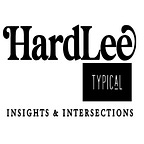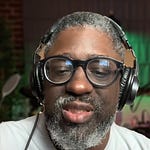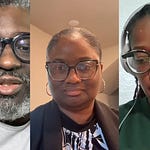Summary
In this episode, Dr. Lamar Hardwick and Dr. Tareesha Lee discuss the intersection of disability and faith, prompted by the movie 'The Deliverance' on Netflix. They highlight the harmful belief in some faith communities that disabilities are caused by demonic possession or a lack of faith. They emphasize the importance of referring families to professionals and medical resources, rather than solely relying on prayer. They also address the issue of spiritual abuse when disabilities are treated as solely a faith issue, neglecting the need for medical and therapeutic support. The conversation explores the topic of healing and the narrow definition of healing within the church. It highlights the spiritual abuse that can occur when individuals with disabilities are told they need to be healed and that their disability is a result of demonic possession. The conversation emphasizes the importance of leaving room for God's will and recognizing that healing can come in various forms, including emotional, mental, and psychological healing. It also challenges the idea that the church is the sole source of healing and encourages pastors and leaders to refer individuals to other professionals and resources when necessary. The conversation explores the parallel between deliverance and disabilities, emphasizing the need to recognize, accept, and celebrate differences. It challenges the notion that people with disabilities need to be healed or delivered, highlighting the importance of seeing the glory of God within them and believing in their ability to live a productive and joy-filled life. The conversation also addresses the unfair expectations placed on individuals with disabilities and the need to hold them to the same spiritual standard as everyone else. It concludes by advocating for a shift in perspective towards disability as a mere difference, rather than a negative or positive attribute.
Chapters
00:00 Introduction and Shoe of the Day
02:50 Discussion on the Movie 'The Deliverance'
05:21 The Intersection of Disability and Faith
09:24 The Harmful Belief of Demonic Possession
13:08 The Real-Life Stories of Spiritual Abuse
17:25 The Impact on Families and the Need for Support
21:27 The Importance of Referring to Professionals
25:10 Addressing Spiritual Abuse in Churches
27:28 Expanding the Definition of Healing
36:31 Leaving Room for God's Will
40:59 Challenging the Church's Monopoly on Healing
46:58 The Spiritual Abuse of a Narrow Definition of Healing
49:21 Recognizing the Value of Imperfection
53:14 The Struggle and Specialness of Disabilities
57:36 Seeing the Glory of God in Disabilities
01:08:50 Celebrating and Accepting Differences
Keywords
disability, faith, intersection, movie, Netflix, demonic possession, lack of faith, spiritual abuse, medical support, therapeutic support, healing, church, spiritual abuse, disability, demonic possession, God's will, emotional healing, mental healing, psychological healing, intersection, resources, deliverance, disabilities, differences, acceptance, celebration, healing, productivity, joy-filled life, unfair expectations, spiritual standard, perspective shift.
Takeaways
The belief that disabilities are caused by demonic possession or a lack of faith is harmful and can lead to spiritual abuse.
Faith communities should refer families to professionals and medical resources for support and guidance.
Treating disabilities solely as a faith issue neglects the need for medical and therapeutic interventions.
Disabilities should not be infantilized or stigmatized within faith communities. The narrow definition of healing within the church can lead to spiritual abuse and the marginalization of individuals with disabilities.
It is important to leave room for God's will and recognize that healing can come in various forms, including emotional, mental, and psychological healing.
The church should not be the sole source of healing and should be willing to refer individuals to other professionals and resources when necessary.
Educating pastors and leaders about disabilities and available resources can help prevent unintended harm and promote a more inclusive and supportive environment. Recognize, accept, and celebrate differences instead of dividing based on disabilities
Believe in the ability of individuals with disabilities to live a productive and joy-filled life
Do not hold individuals with disabilities to a higher spiritual standard
Shift the perspective towards disability as a mere difference, not a negative or positive attribute.
Titles
The Intersection of Disability and Faith
Recognizing and Combating Spiritual Abuse Leaving Room for God's Will in the Healing Process
Challenging the Narrow Definition of Healing in the Church Shifting Perspectives: Disability as a Mere Difference
Believing in the Ability to Live a Productive and Joy-Filled Life
Sound Bites
"It's the presence of a demon. This is a lack of faith. This is something you have to pray through. This is something that has to be cast out."
"We never talk about that. We never talk about that. What we do instead is, first of all, we infantize disability anyway."
"Making someone who is disabled or atypical, making what their challenges is as a family solely a faith issue also becomes spiritual abuse."
"If you knew God the way I knew God and you trusted God the way I trusted God, you wouldn't be afraid, because I'm not worried."
"Unintended harm usually is the result of uneducated people doing things that they're not educated to do."
"The church is not equipped to give you all the support and tools you need in certain areas."
"The things that make me struggle are also the things that make me special."
"Even if I'm not healed, I'm still His. And even though I might not be healed, God still believes."
"There's still a harvest that can come out of your life despite all of these challenges that are intertwined into the life."












